Letter recognition Letter Recognition Worksheets for Ages 4-7
63 filtered results
-
From - To
Discover our Letter Recognition Worksheets designed for ages 4-7 at Kids Academy. These worksheets help young learners identify, trace, and write each letter of the alphabet with engaging and fun activities. Specifically crafted to enhance early literacy skills, they provide a solid foundation in letter recognition, a crucial step for budding readers and writers. Perfect for both classroom and home use, these resources promote confidence and success in early education. Explore our collection of age-appropriate, expertly-made materials today and give your child the gift of learning letters with ease and enjoyment.


Letter E Coloring Sheet
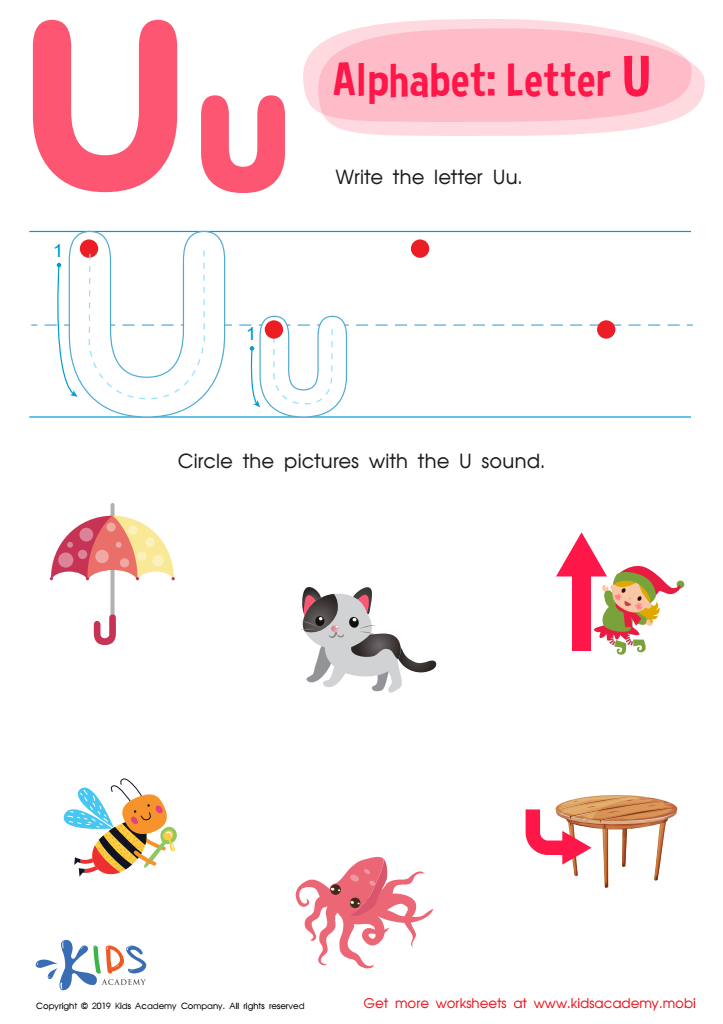

Letter U Tracing Worksheet
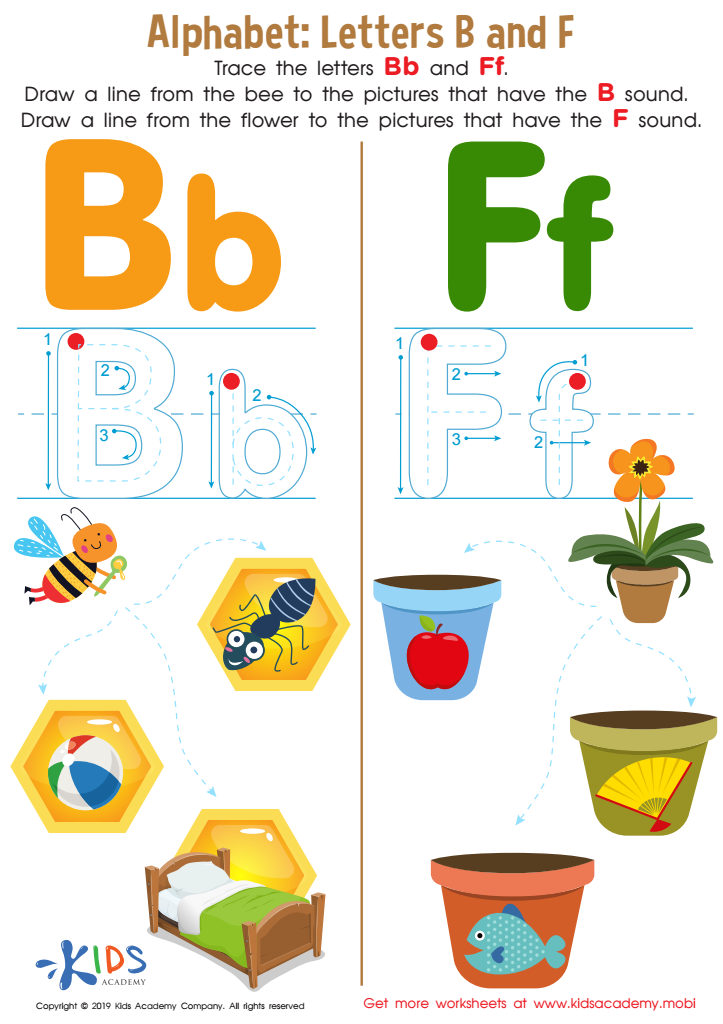

Letters B and F Tracing Worksheet


Letter R Tracing Page
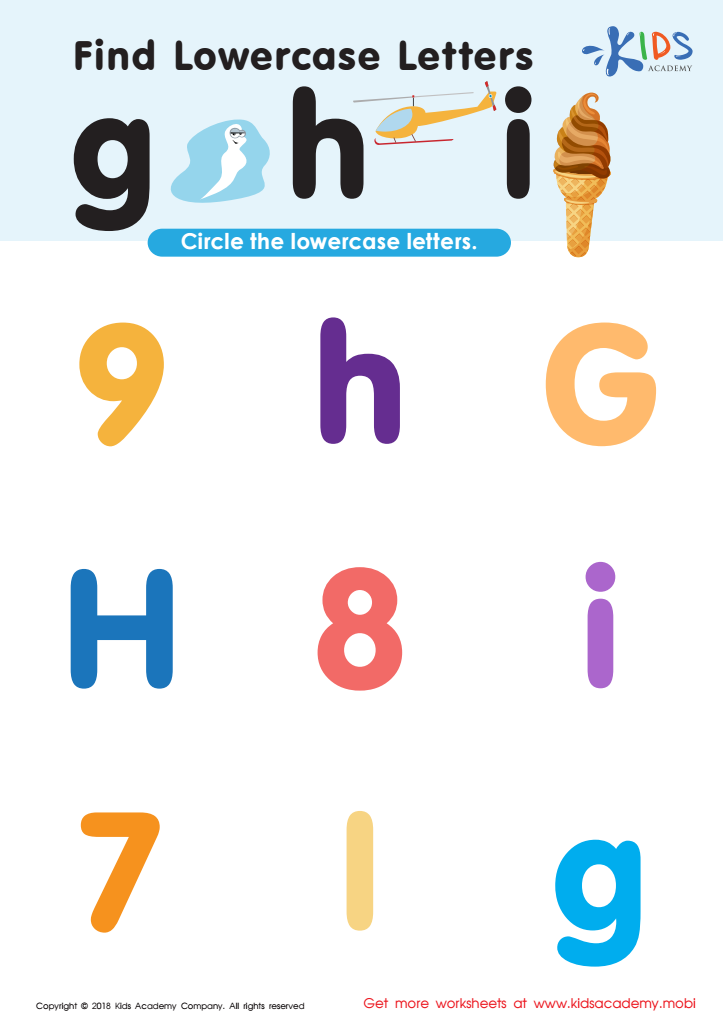

Find Lowercase Letters g h i Worksheet


Letter X Tracing Page


Letter P Tracing Page
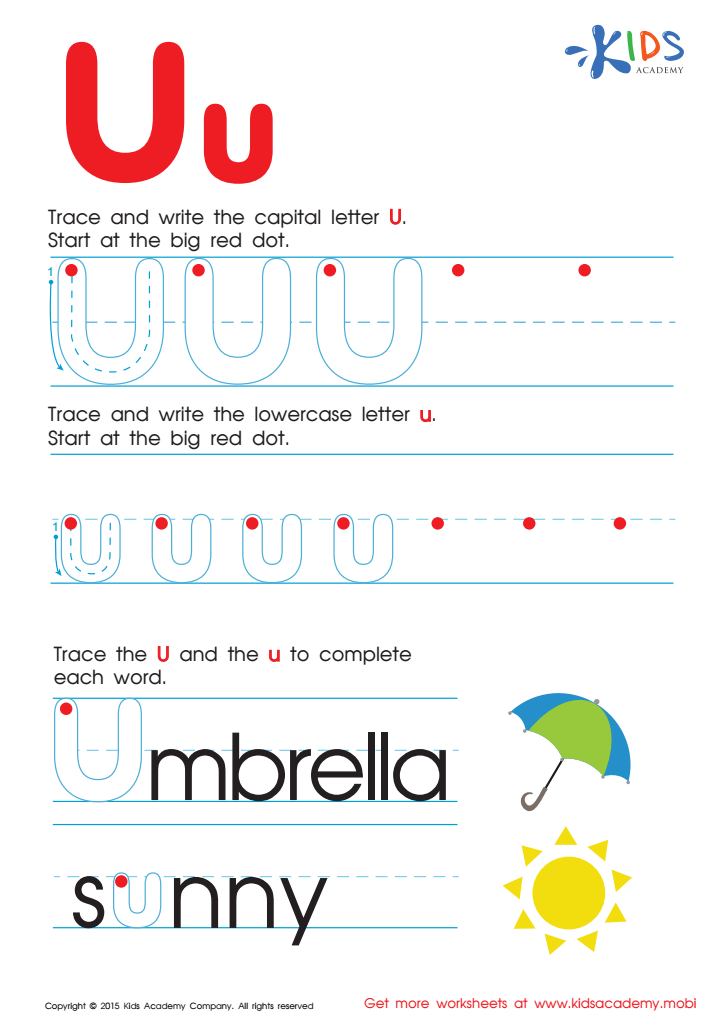

Letter U Tracing Page
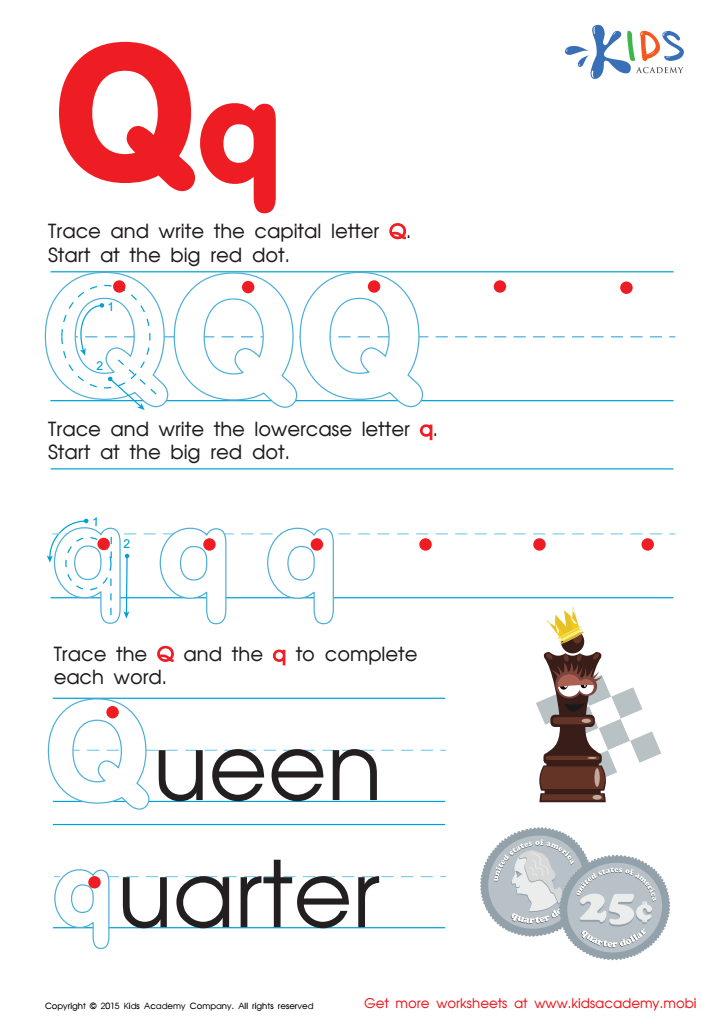

Letter Q Tracing Page
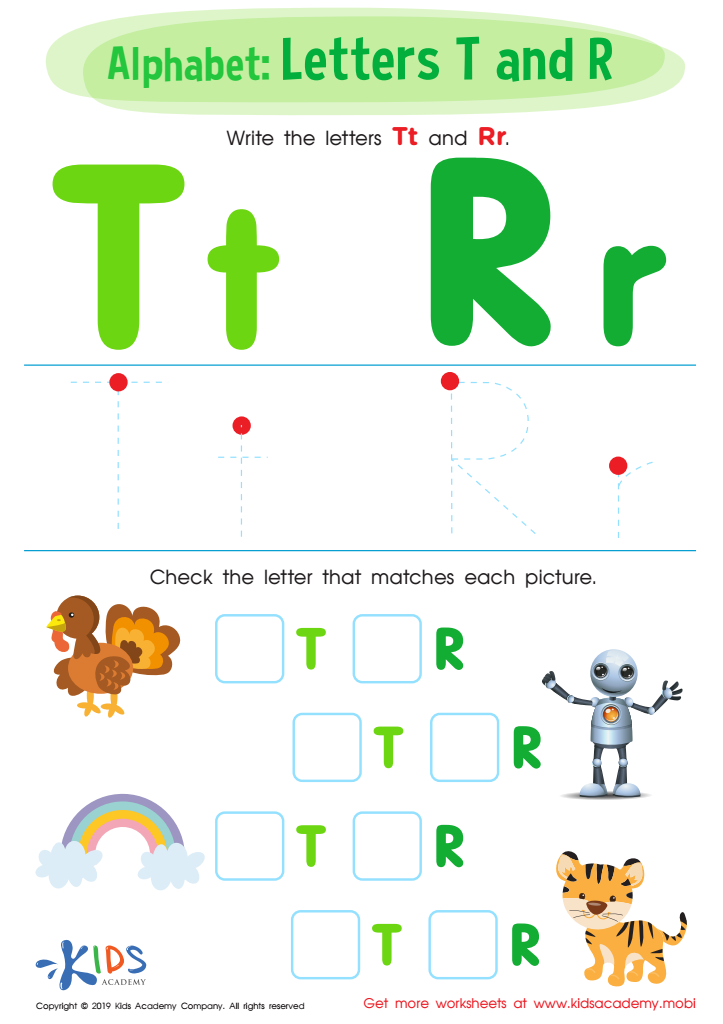

Letters T and R Worksheet
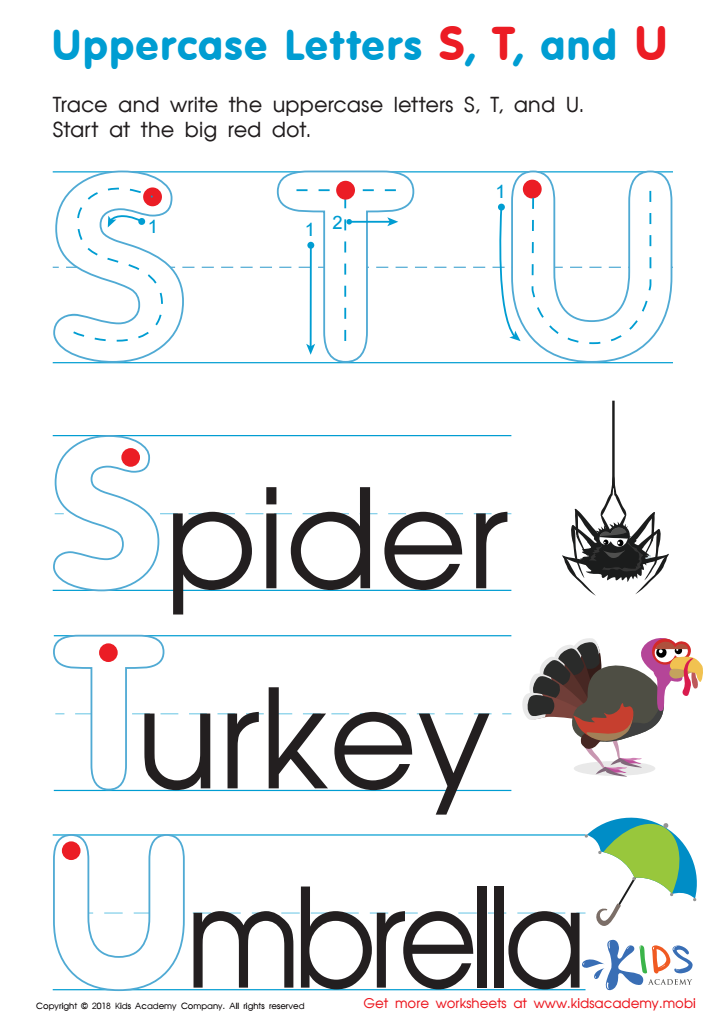

Uppercase Letters S, T, and U Worksheet
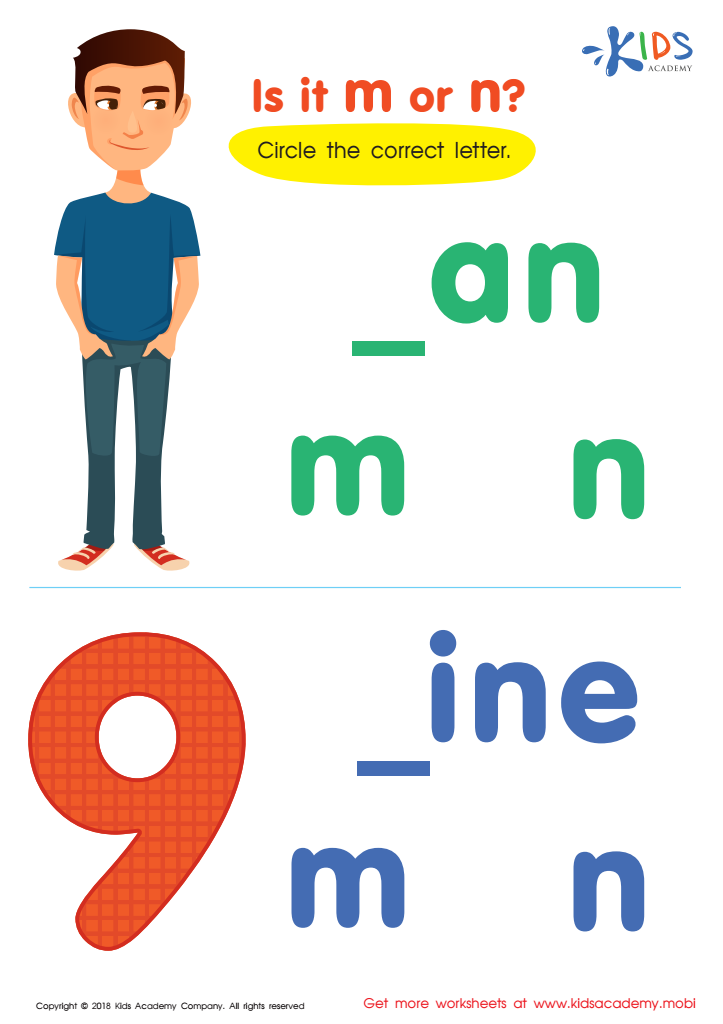

Is It m or n? Worksheet
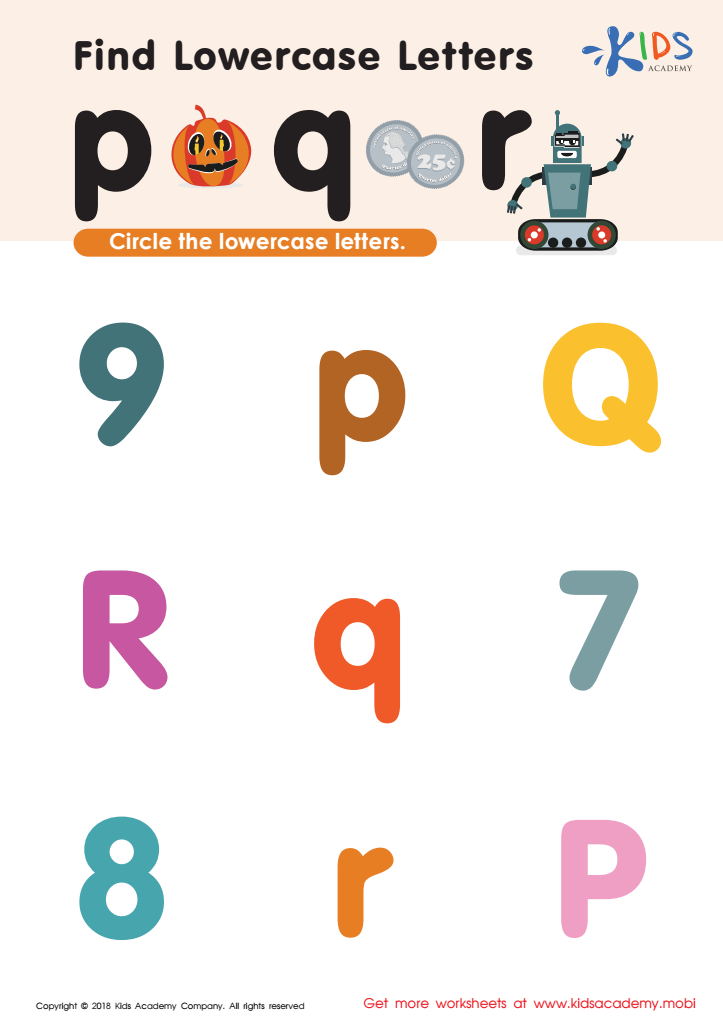

Find lowercase Letters p q r Worksheet
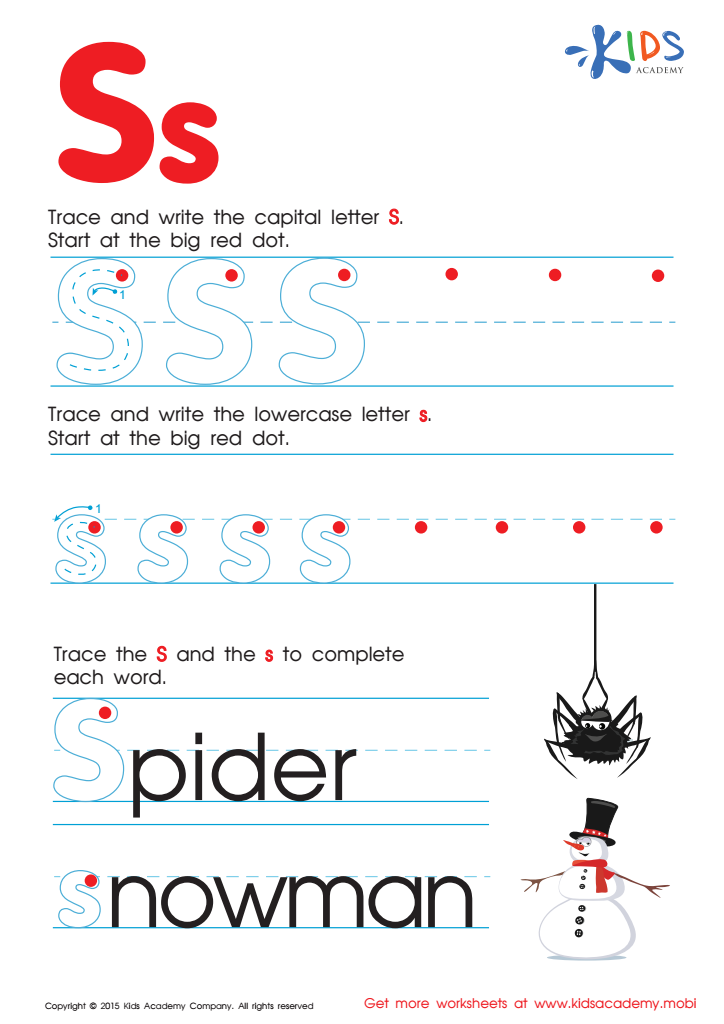

Letter S Tracing Page
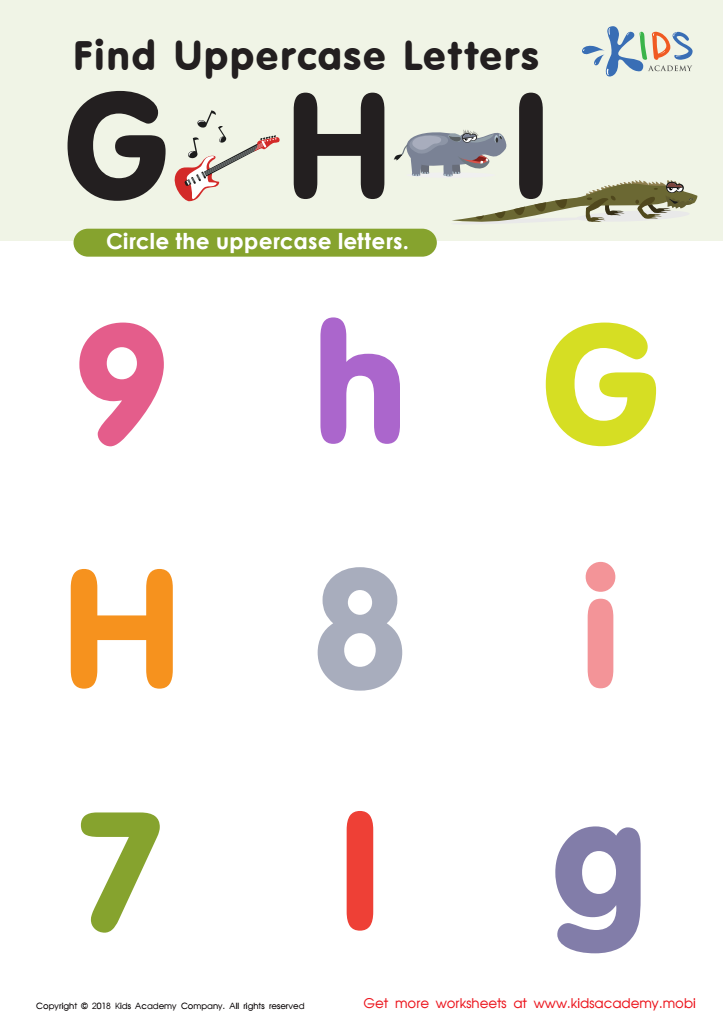

Find Uppercase Letters G, H, and I Worksheet
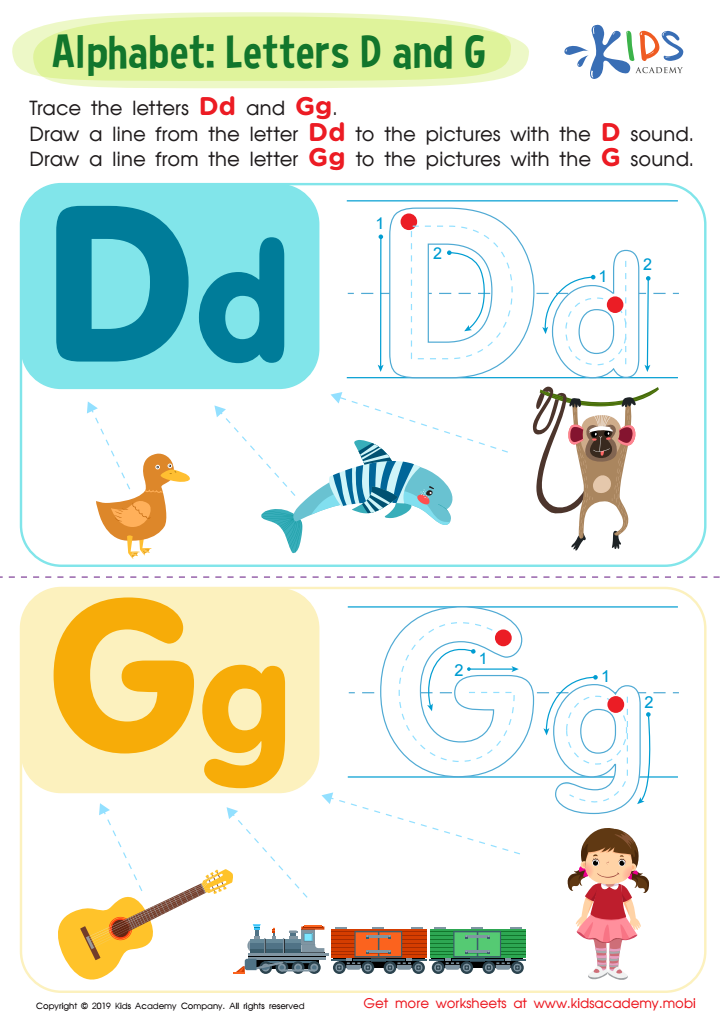

Letter D and G Tracing Worksheet
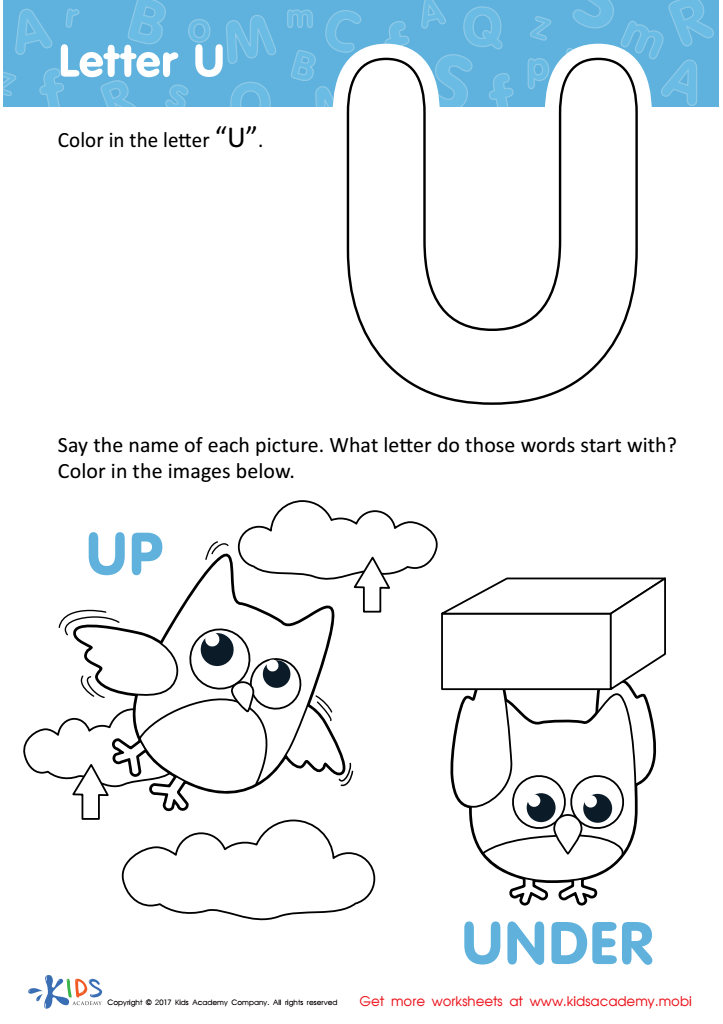

Letter U Coloring Sheet
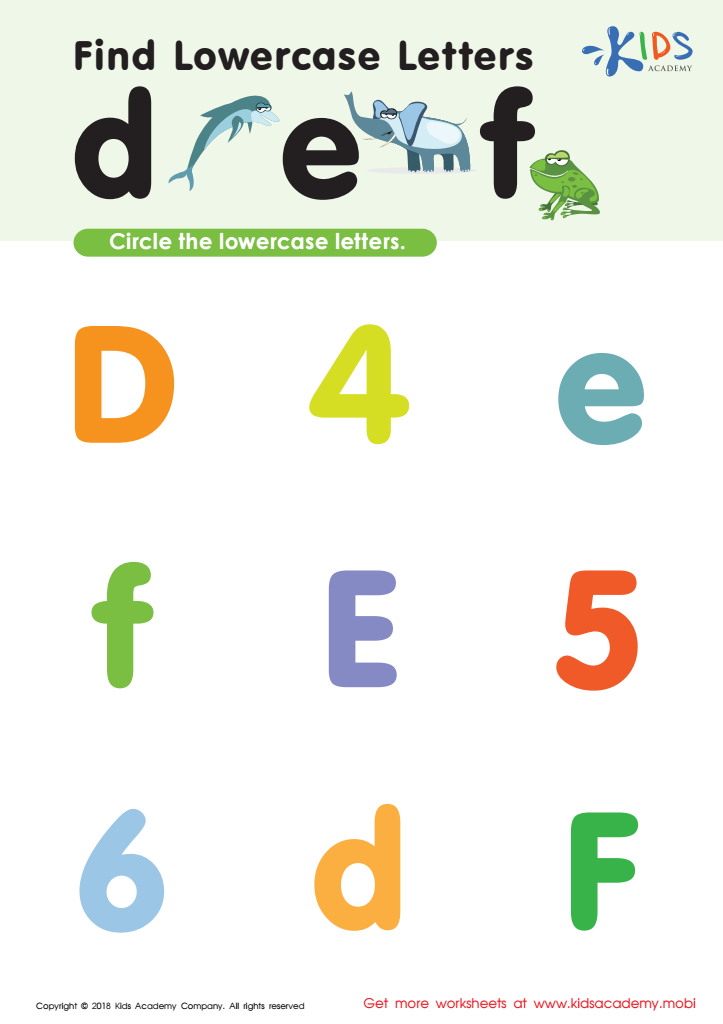

Find Lowercase Letters d e f Worksheet
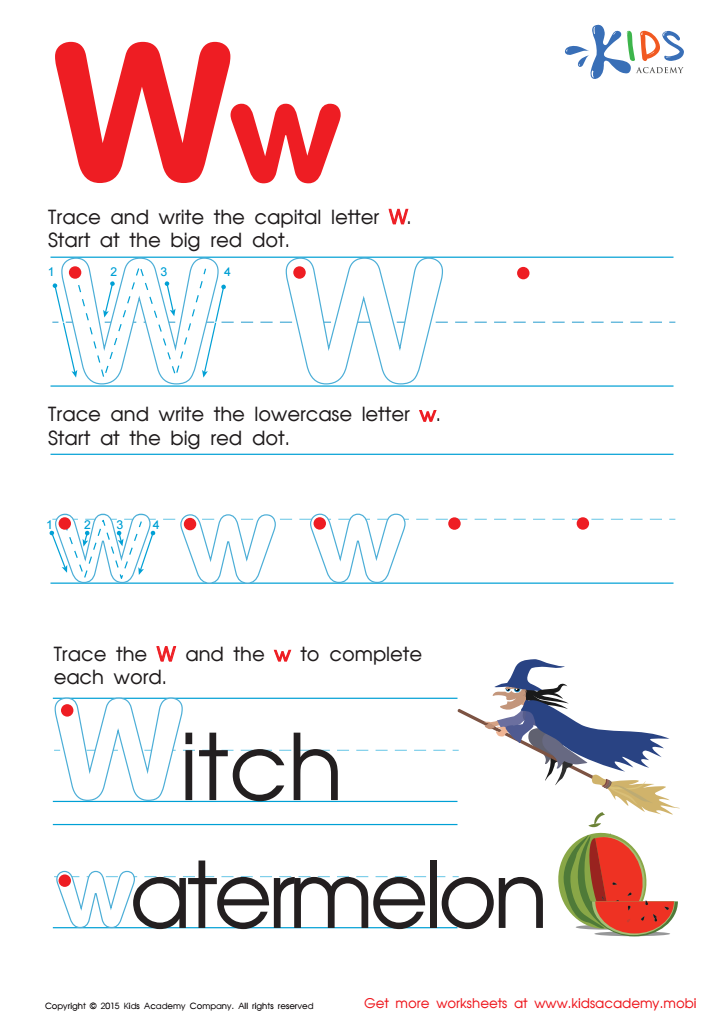

Letter W Tracing Page


Letter H Tracing Page
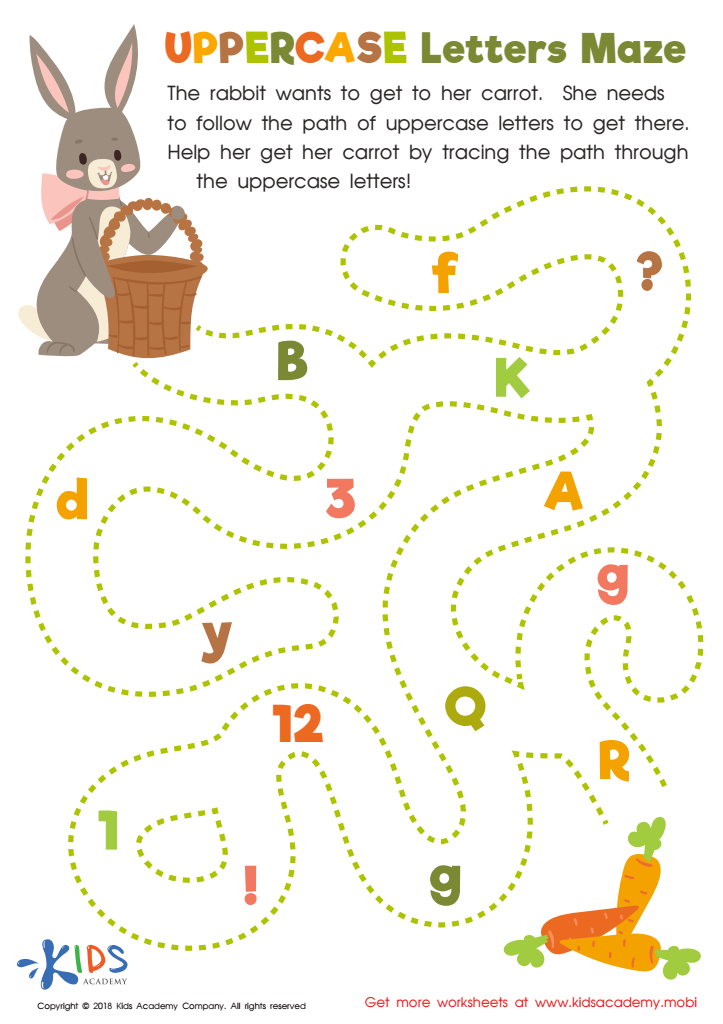

Uppercase Letters Maze Worksheet
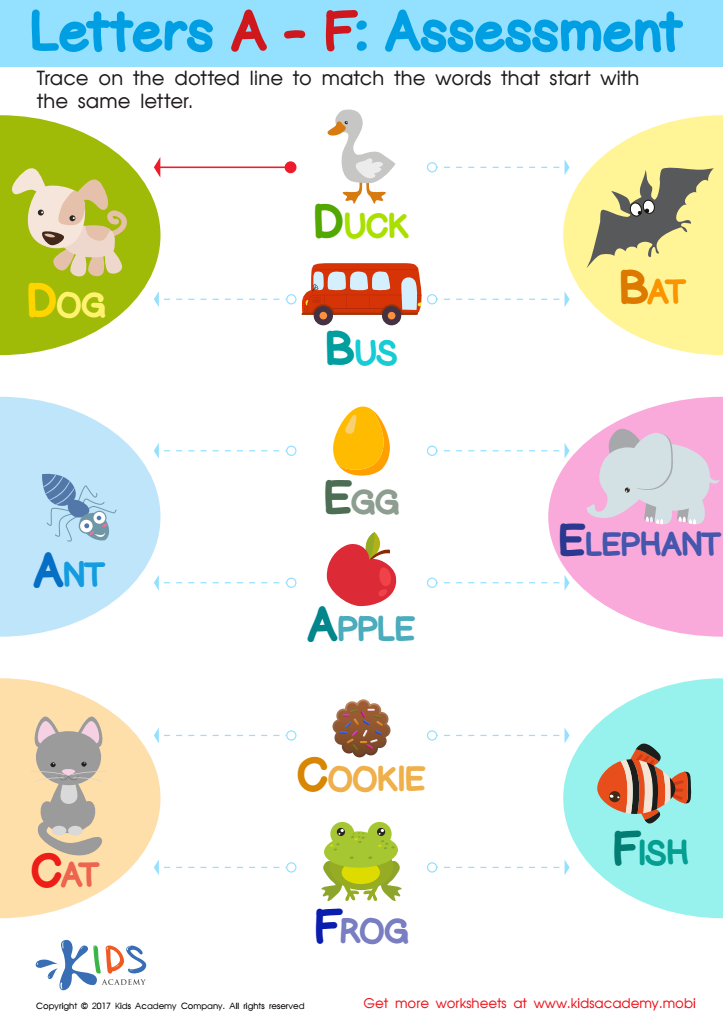

Letters A - F Worksheet
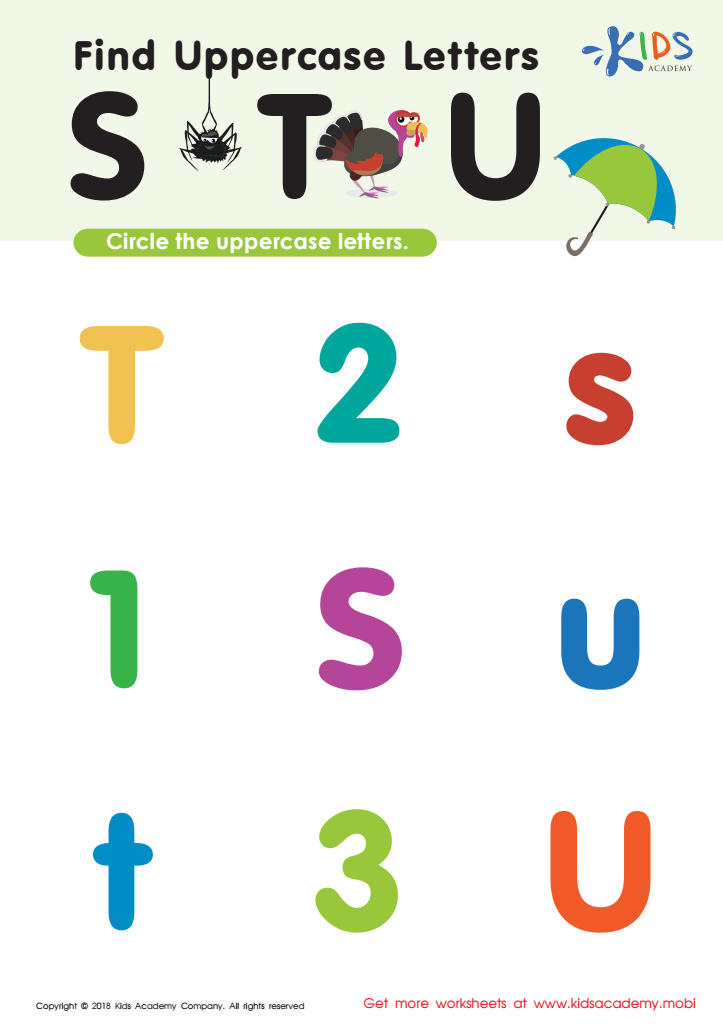

Find Uppercase Letters Worksheet
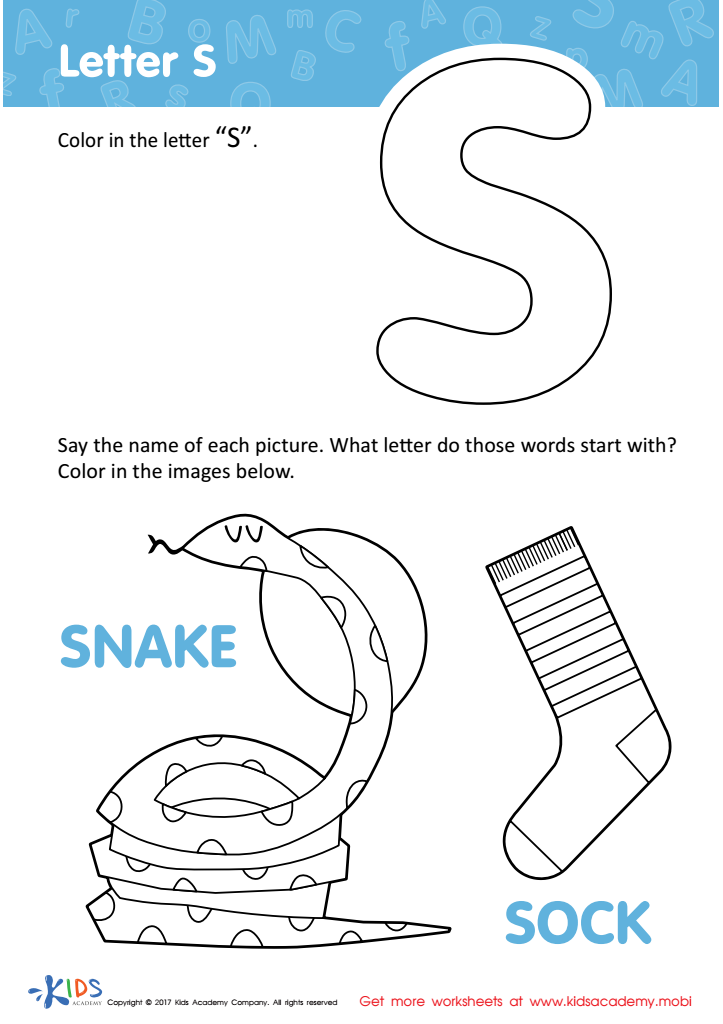

Letter S Coloring Sheet
Letter recognition is a fundamental stepping stone in a child’s educational journey, particularly between the ages of 4 and 7. During these formative years, children are like sponges, rapidly absorbing information and developing cognitive and motor skills. Here’s why parents and teachers should prioritize letter recognition:
Firstly, letter recognition is the foundation of reading and writing. Understanding letters and their corresponding sounds (phonics) enables children to decode words, which is essential for reading fluency. Proficient readers have better comprehension skills, leading to academic success across various subjects.
Secondly, developing letter recognition skills early fosters a blend of linguistic and cognitive abilities. This includes visual and auditory memory, as children need to discern between different shapes and sounds of letters. It also enhances fine motor skills necessary for writing, as children learn to form letters correctly.
Moreover, early mastery of letter recognition can boost a child’s confidence and enthusiasm for learning. Positive reinforcements in this developmental stage create a love for learning and make subsequent educational milestones less daunting.
Lastly, strong letter recognition skills are directly linked to literacy rate improvements. Children prepared with strong foundational skills are less likely to struggle academically and more likely to enjoy lifelong educational pursuits.
Therefore, parents and teachers investing time in cultivating these skills are essentially building the cornerstone for a child's academic and personal success.
 Assign to My Students
Assign to My Students




















